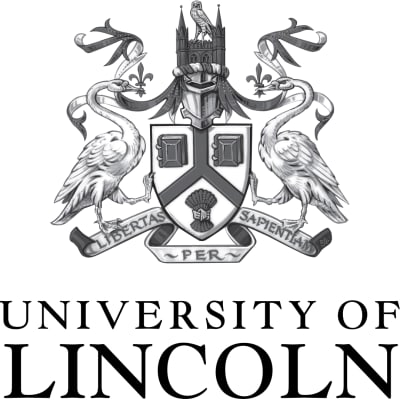
LLB (Hons) Law
University of Lincoln

Key Information
Campus location
Lincoln, United Kingdom
Languages
English
Study format
On-Campus
Duration
3 - 4 years
Pace
Full time, Part time
Tuition fees
Request info
Application deadline
Request info *
Earliest start date
Request info
* late applications will be considered if suitable vacancies remain
Discover Lincoln Wherever You Are in the World
Our webinars, subject masterclasses, question and answer sessions, and student panel talks are a great way to discover what it is like to live and study at the University of Lincoln.
Introduction
The rule of law is the cornerstone of any just and fair society, and to be administered correctly it requires skilled and knowledgeable legal professionals.
LLB (Hons) Law at Lincoln has been developed to advance students' understanding of the changing and dynamic nature of law and how it operates in practice. There is the chance to gain important practical legal skills, such as mooting, and negotiation, as well as taking part in the Lincoln Law Clinic - a pro bono law clinic which handles real cases.
The course can act as the first step towards a career in the legal profession. It provides the key skills and knowledge needed to go on and study towards qualifications as a barrister or solicitor. Alternatively, this course could form the basis of becoming a solicitor, via a Solicitors Qualifying Exam (SQE) route.
"This information was correct at the time of publishing (July 2023)"
Admissions
Curriculum
How You Study
This degree enables students to progress their theoretical knowledge of substantive law and to think about law practically. Students are encouraged to build an understanding of the context of the English legal system - its origins, history, and practices - and reflect upon policy and the social, political, ethical, philosophical, and cultural contexts in which the law operates.
The course gives students the chance to choose areas of law in which they have a particular interest. In addition to our core modules, students can select from a diverse array of optional modules, ranging from Police Powers, and International Law, to Consumer and Corporate modules. In the final year, students have the option of writing a dissertation or having their voluntary work in the student-led law clinic officially recognised by undertaking an assessed module.
Students undertaking the programme can benefit from an optional study abroad period between their second and third years. Previous students have studied in Norway, South Africa, and Japan. Limited places are available and are allocated competitively, subject to academic criteria. Please note that students are responsible for their own travel, accommodation, and general living costs when studying abroad.
Lectures
Lectures aim to provide a through-provoking guide to a topic, highlighting important areas and providing information on matters that may not be readily available from other sources. The lecturer will also point out areas of difficulty where the law may be in some way problematic, contentious, unsettled or unclear.
Seminars
Seminars are normally held once a week for each module. The seminars are designed to provide an opportunity for students to consolidate their learning. Seminars provide a forum for group and whole-class discussion and debate and are usually based on the preparation of an answer to a problem or a discussion topic. This approach encourages students not only to acquire legal knowledge but also to develop their understanding of problem solving, analysis, and evaluation. The importance of careful preparation for seminars and, in particular, the reviewing and analysis of primary and secondary sources of information is stressed to students throughout. From the outset of the course, students have the opportunity to start to develop their research skills, particularly in the Legal System and Skills module.
E-seminars
Teaching and learning is enhanced through the use of E-seminars. E-seminars are currently used in the Contract Law Level One module and take place in an IT lab. Students work in small groups and are given the task to construct and present a legal argument based on the topic discussed the previous week in the lecture. Students must construct their arguments using a variety of materials, both primary and secondary sources, to be found electronically under a time constraint.
First Year
- Constitutional and Administrative Law (Core)
- Contract Law (Core)
- Legal Systems and Skills (Core)
- Tort Law (Core)
Second Year
- Criminal Law (Core)
- European Union Law (Core)
- Land Law (Core)
- Animal Law and Ethics (Option)†
- Company Law (Option)†
- Environmental Law (Option)†
- Financial Services Regulation (Option)†
- Freedom of Expression (Option)†
- Global Issues (Option)†
- Human Rights Law in a Global Context (Option)†
- Human Rights Law in the UK (Option)†
- Intellectual Property Law (Option)†
- Intelligence and Security Law (Option)†
- Jurisprudence (Option)†
- Model United Nations (Option)†
- Police Powers (Option)†
- Sale of Goods (Option)†
- Study Abroad (Option)†
Third Year
- Equity and Trusts (Core)
- Analysing the Policy Process (Option)†
- Business Law in Practice (Option)†
- Civil Litigation (Option)†
- Consumer Law (Option)†
- Employment Law (Option)†
- Family Law (Option)†
- Human Rights (Law) (Option)†
- International Law (Option)†
- Law Clinic (Option)†
- Law Dissertation (Option)†
- Law in Practice (Option)†
- Law of Evidence (Option)†
- Law of Succession (Option)†
- Law of Tort (Option)†
- Law Placement (Option)†
- Understanding the Policy Process (Option)†
- Working in Education and Children's Services (Option)†
† Some courses may offer optional modules. The availability of optional modules may vary from year to year and will be subject to minimum student numbers being achieved. This means that the availability of specific optional modules cannot be guaranteed. Optional module selection may also be affected by staff availability.
How You Are Assessed
A variety of assessment methods are used to test subject knowledge and understanding. Examinations include traditional unseen papers, including both closed and open book-style examinations.
In addition to examinations, students are assessed by coursework which takes the form of assignments, mooting, individual and group presentations, negotiations, and workbooks. Written assignments may be in the form of an in-depth case study, an essay, writing a review or reflective piece. Coursework provides students with an opportunity to gauge how they are coping with various subject areas and levels of study before having to sit an examination.
These methods of assessment allow students to show how they have acquired both legal knowledge and the ability to think critically about the subject. In addition, they allow the student to reflect on the feedback given for an assessed piece of work and to think of ways to improve the quality of their work before they sit an examination at the end of the academic year or attempt another piece of coursework.
The assessment regime also allows students to demonstrate the acquisition of key skills. Written assignments allow students to demonstrate their ability to select, interpret, and summarise legal sources. In addition, written assignments and examinations, enable students to show that they have developed their literacy and proficiency in the use of technical legal language, as well as having developed their ability to produce a sound argument based on coherence and logic. The development of oral skills and the ability to be persuasive arise assessed through presentations and mooting.
Moot Court
Our mock-court environment allows students to explore key principles of modern legal practice in a variety of courtroom roles to strengthen their studies and practice their mooting skills. It features a judge's bench, witness stand, clerk's desk, and prosecution and defense solicitor's benches to simulate the environment of a working court roocourtroomm.
Gallery
Program Outcome
How You Study
This degree enables students to progress their theoretical knowledge of substantive law and to think about law practically. Students are encouraged to build an understanding of the context of the English legal system - its origins, history, and practices - and reflect upon policy and the social, political, ethical, philosophical, and cultural contexts in which the law operates.
The course gives students the chance to choose areas of law in which they have a particular interest. In addition to our core modules, students can select from a diverse array of optional modules, ranging from Police Powers, and International Law, to Consumer and Corporate modules. In the final year, students have the option of writing a dissertation or having their voluntary work in the student-led law clinic officially recognised by undertaking an assessed module.
Students undertaking the programe can benefit from an optional study abroad period between their second and third years. Previous students have studied in Norway, South Africa, and Japan. Limited places are available and are allocated competitively, subject to academic criteria. Please note that students are responsible for their own travel, accommodation, and general living costs when studying abroad.
Lectures
Lectures aim to provide a through-provoking guide to a topic, highlighting important areas and providing information on matters that may not be readily available from other sources. The lecturer will also point out areas of difficulty where the law may be in some way problematic, contentious, unsettled or unclear.
Seminars
Seminars are normally held once a week for each module. The seminars are designed to provide an opportunity for students to consolidate their learning. Seminars provide a forum for group and whole-class discussion and debate and are usually based on the preparation of an answer to a problem or a discussion topic. This approach encourages students not only to acquire legal knowledge but also to develop their understanding of problem solving, analysis, and evaluation. The importance of careful preparation for seminars and, in particular, the reviewing and analysis of primary and secondary sources of information is stressed to students throughout. From the outset of the course, students have the opportunity to start to develop their research skills, particularly in the Legal System and Skills module.
E-seminars
Teaching and learning is enhanced through the use of E-seminars. E-seminars are currently used in the Contract Law Level One module and take place in an IT lab. Students work in small groups and are given the task to construct and present a legal argument based on the topic discussed the previous week in the lecture. Students must construct their arguments using a variety of materials, both primary and secondary sources, to be found electronically under a time constraint.
Scholarships and Funding
For eligible undergraduate students going to university for the first time, scholarships and bursaries are available to help cover costs. The University of Lincoln offers a variety of merit-based and subject-specific bursaries and scholarships.
Several scholarship options are available. Please check the university website for more information.
Program Tuition Fee
Career Opportunities
The School has extensive links with the local legal profession through a professional mentoring scheme and other initiatives. You'll be encouraged to obtain placements in industry independently. Placements can range from a few weeks to a full year. Please note, you'll be responsible for the costs associated with placements including accommodation, travel, and general living expenses.